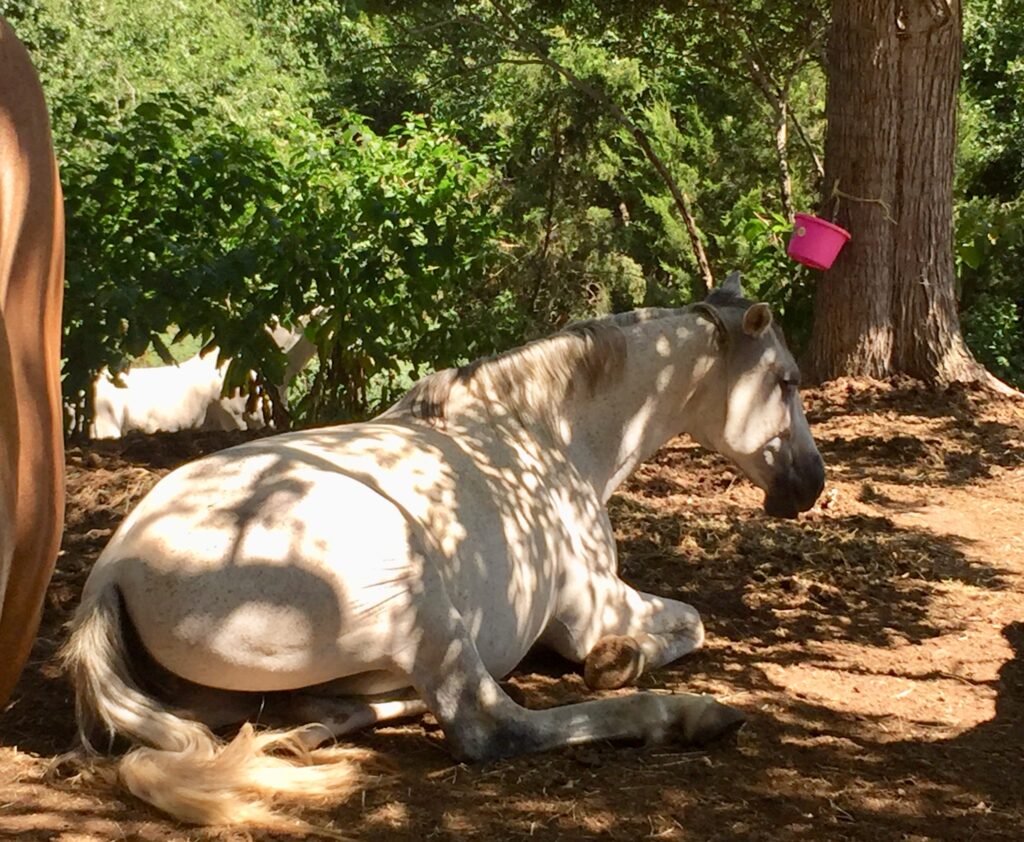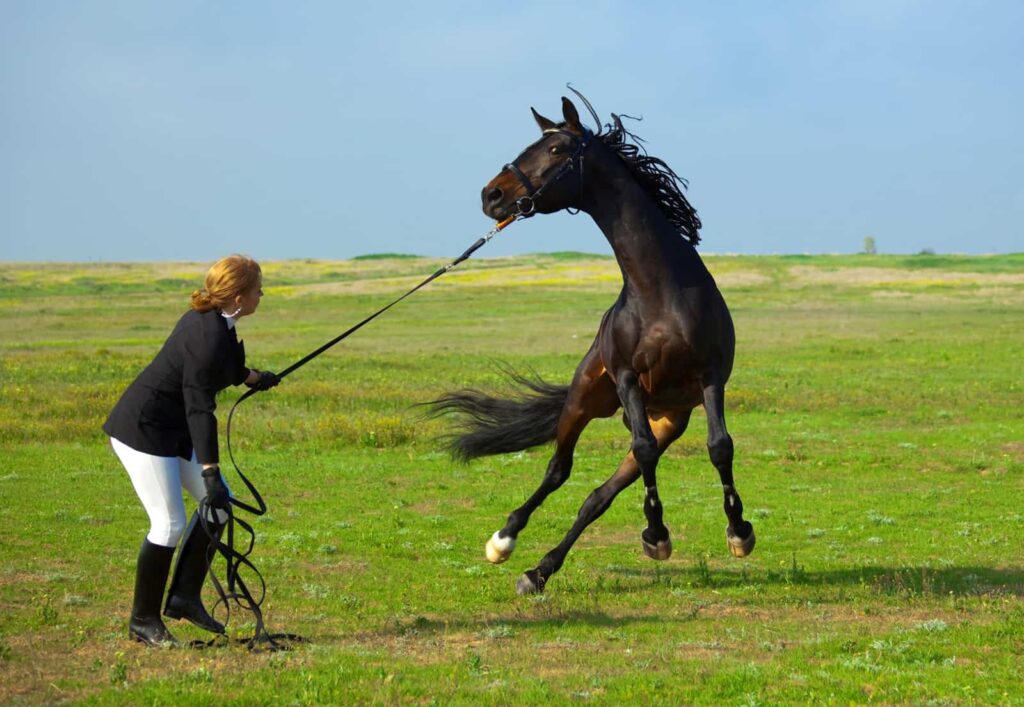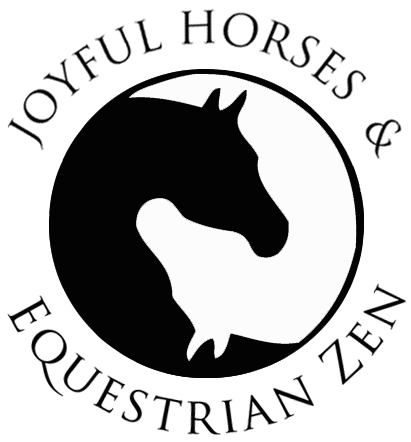The Balance Point ELC has been the safe haven for many rescue horses and older ex-performance horses over the last 20 years. During that time, I have learned a few things about helping horses who are prone to choke or colic. Here’s a few tips to help you prevent stomach issues and that dreaded emergency vet visit.

- Alfalfa slushies are better than “an apple a day to keep the dr away”. Soak some alfalfa cubes until they are soft, add in some good probiotics, aloe Vera juice & papaya enzyme and you have a wonderful mix to help your horse deal with the extra acid production in their gut due to pain and other stressors.
- Slow feed hay bags filled with enough hay to last your horse through the day and night will allow your horse to keep some roughage in their stomach to help avoid ulcers and help them with food anxiety. Leave a couple flakes of hay out so they can feel a little satiated before they have to eat from the slow feed hay feeders since hungry horses are easily frustrated.
- Check your horse’s manure- if you can see hay particles in the manure your horse isn’t able to adequately chew their dry forage. These larger food pieces can also cause irritation to the intestines and diarrhea. Have your horse’s teeth checked by an equine dental specialist and feed your horse at least 10lbs of wet hay cubes and pellets daily. For older horses who have lost the use of their teeth, you can feed them enough wet hay mash to keep them eating all day. People often try supplements and different feeds to put weight on older horses, but what they usually need is a source of roughage that is pre chewed for them.
- After deworming your horse, give them extra probiotics for a few days to help them rebuild the good bacteria in their gut. Keep in mind not all probiotics are the same. If you need some help finding a good one that doesn’t break the bank, send me a DM.
- Once a year do a Panacur PowerPac (Fenbendazole). This 5 day treatment at a double dose of Fenbendazole helps get encysted worms that hide in the horse’s stomach lining. Follow up with QuestPlus a week later to get the rest out. Don’t forget your extra probiotics after the purge to rebuild your horse’s gut biome. Fenbendazole is safe for horses even if they aren’t in good condition. And you can pour the liquid on alfalfa to get deworm horses that are unfamiliar with eating feed concentrates. This protocol was recommended by multiple veterinarians that I have known.
- Before you work with your horse, give them an alfalfa slushy to eat. You can even do this while you groom them. Giving them a little extra hydration and some roughage in their stomach can help extra gut acid from splashing around and causing them pain while they work.
- If your horse seems grumpy, irritable, or spooky, have them checked for unaddressed pain issues and do a course of omeprazole or gastroguard to help them heal ulcers. Keep in mind that your horse also needs Friends, Forage & Freedom to move around so ulcers are a symptom that your horse needs some modifications in their lifestyle to help them with their stressors.
- Avoid sugar in your horse feed and treats. Sugar can cause more acid production as well as increase inflammation and make old physical injuries more painful.
- If your horse eats their food fast, they need to be fed separately and in the form of a wet mash. Resource guarding issues such as chasing other horses away from the feeding area can be reduced by consistently separating horses before you feed them so they can eat their food without causing other horses stress. The resource guarding horse can often be helped with a course of omeprazole. Abler.com has granules you can put in their food and is affordable enough for most.
- Horses labeled as “sensitive” or “high strung” horses are often prone to colic because their nervous system stays predominantly in a state of Fight or Flight.. These horses need to feel safe and be able to relax enough to lay down and sleep. We can’t always keep our horse’s neighbors from causing them stress, but we can incorporate ways to help them feel some semblance of control in their life. Positive reinforcement training and errorless learning can help horses feel more confident and help their brain switch from living in “Fight or Flight” mode to “Rest & Digest”. Which in turn gets your horse’s brain ready to learn and participate fully in their training. Learn about simple exercises to start with at Balance Point Equestrian.com
Quick List of things that can add stress in your horse’s life that we often overlook:

- Storms or extreme weather changes
- A horse friend leaving for a period of time
Trailering - Seeing unknown animals
- Construction nearby
- Wind blowing things around
- Unaddressed body pain (feet, mouth, arthritis, headache)
- Heat cycles
- Grumpy roommate
- High sugar grass
- Working on an empty stomach
- Be sure to give your horses extra support during these times!
